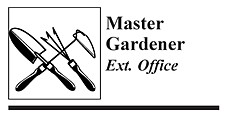March 22, 2007 at 8:23 a.m.
They need full sun and the type of soil is extremely important to starting raspberries. About 90 percent of the root system is in the top 20 inches of soil where the root must take up moisture and nutrients. Raspberry plants will not tolerate poorly drained soil. Even temporary water-saturated soil conditions can cause serious injury. This includes poor cane growth and increased incidents of soil-borne diseases and plant death.
Raspberries grow best in soil with a ph between 5.5 and 6.5. They will not grow well in soil with a ph below 5.5 and iron deficiency may occur in soils with a ph above 7.0. Raspberries require exposure to sun-light and air movement. They also need protection from wind and frost injury. By this I mean, plants on the south-facing slopes may ripen earlier than those on the north facing slope. Warm temperatures in late winter and early spring can stimulate bud activity before the dangers of damaging cold temperature have passed.
There are two types of raspberries for our area, (zone 3) summer bearing and everbearing. Summer bearing are raspberries that will bear once a year, usually the beginning of July. Even though you need not worry about frost on the berries, they need to be winter hardy.
Boyne is an old time favorite for summer bearing raspberries. In fact, if there were raspberries on the place where you grew up or if you moved to a place where raspberries were already established, chances are they are Boyne. Another popular summer variety is Latham.
The only summer bearing raspberry the Chisago County Master Gardeners are offering for sale is Killarney. This plant was developed in Manitoba. It is the sibling of Boyne and it has a superior hardiness (zones 3-8). The canes are short to medium with lots of stickers; fruits are firmer and larger than Boyne. They are excellent fresh or frozen. They produce numerous berries that tend to weigh down the canes if not supported.
We are offering three different ever-bearing varieties. One of these is Autumn Britten which we offered last year for the first time. This variety ripens before Heritage about the 15th of August. It has a very large, very firm and coherent berry that is very flavorful. It also has shown to be very winter hardy.
We have offered Heritage as long as we have been selling plants. The fruit is medium sized, red, and very firm. Canes are tall, vigorous, and sucker prolifically, very erect and sturdy requiring no support. The only draw-back is that they won't be in full harvest until about the 15th of September. If we get an early frost you will lose the main production season. That is why some order both Autumn Britten along with Heritage.
Since we had earlier request for offering a yellow raspberry, we ordered a few Kiwi Gold. They are ever bearing with harvest and yields similar to Heritage. This is a yellow-gold variety with sweet flavor and great holding ability on the vine, and it is firm and juicy. Plants are vigorous and resist powdery mildew. To ensure good pollination grow with red raspberries nearby. None of the Master Gardeners know much about Kiwi Gold, but we are willing to learn.
The pruning of summer and ever bearing is quite different. Summer bearing raspberries, like Killarney, need to be pruned in the spring. They bear on 2-year-old canes. Cut out old dead canes which were the ones that produced the year before. You can prune back new canes that have gotten too tall, but do not cut back lower than two feet. If you prune them back too low, you will get a lot of bush, but no berries.
One of the real advantages of ever-bearing raspberries is after the ground has frozen in the fall, you can cut the plants back within inches from the ground. This means you will not get a summer crop, but the main crop is produced in the fall.
We are planning spring classes where we give help in raising most of the plants we sell.
April 21, at the Senior Center in North Branch, we will be offering classes on insect control of fruit tress, raising raspberries and raising strawberries. Please contact the Extension office at North Branch, 651-674-4417 or me at 651-257-4496 to get a brochure.
+++++
The first class of 'Garden Fever,' our spring gardening series, will be Saturday, March 24, from 9 a.m.-noon, at the Senior Center in North Branch. There will be three one hour sessions presented on vegetable gardening. Brochures are available on the website at www.extension.umn.edu/county/chisago or you can call the Extension office at 651-674-4417 to have one mailed to you.






Comments:
Commenting has been disabled for this item.